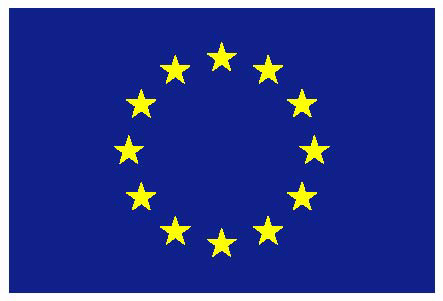SWIFT
Supporting Women-led Innovations in Farming and rural Territories
SWIFT’s overall objective is to foster transitions towards sustainable, balanced and inclusive development of rural areas in Europe by favouring the deployment of women-led innovations (WLI) acting for change in agriculture, promoting gender equality in rural areas from an intersectional, feminist and human rights-based perspective. SWIFT pursues this by engaging in applied feminist innovation studies research better reflecting feminist and human-rights based approaches. This will enable to facilitate a change of framing in agriculture to address the social realities that perpetuate inequalities. Women, in all of their diversity, play a central role in agriculture and food systems. Their knowledge, skills, labour and leadership, however, are frequently invisible and undervalued. At present, the European agricultural sector is characterized by high levels of inequality. The multiple barriers to gender equality in European agriculture are socio-cultural, economic and political, and perpetuate women’s inequality within the mutually constituting ‘productive’ sphere of farming outputs and in the ‘reproductive’ sphere of unpaid and undervalued labour that occurs on the farm, in the family and community. Some examples include i) unequal access to land and productive resources, that shape and limit women’s participation in agriculture, constructing gender roles and identities and resulting, among other things, in ii) women under-representation in agricultural organizations and holding very few decision-making positions; iii) current agricultural education and training that reinforce stereotypes about farming as a male activity and which do not encourage young women to pursue agricultural careers; iv) social closure, characterised by interactional dynamics of discrimination, exclusion and/or harassment, that lead to women being discouraged from taking up tasks or acquiring relevant farming skills. The structural gender inequalities in agriculture are acutely felt by social groups that experience multiple and intersecting forms of oppression, including migrant farmworkers and LGBTIQ+ farmers. These intersecting forms of discrimination have not yet been extensively documented, however, they constitute significant barriers to transformative change in rural areas in Europe. One of the main difficulties for gender mainstreaming in agricultural policies is the framing of food. The EU’s primary commitment to purely economic measures of viability of farming businesses reflects the idea of food as a commodity that does not include the forms of farming that tend to be led by women. The framing of food as a commodity also fails to capture the commitments that have been made to the realisation of the right to adequate food. SWIFT will contribute to gender mainstreaming in agricultural and food policies by providing theoretical and practical tools (feminist farm viability indicators and Gender responsive budgeting in policies) to favor a change of framing in those policies that will facilitate the development and implementation of alternative framings of food. Methodologically, SWIFT adopts a feminist, human rights-based, participatory and inclusive research methodology that applies an intersectional perspective, thereby rendering visible diverse experiences of inequality and giving a voice to those who are most marginalised. SWIFT aims to reinforce and amplify innovations led by marginalised actors to confront unequal social, economic and political structures in European agricultural and food systems. We defined WLI in agriculture as grassroots innovations built to challenge structural inequalities in agriculture in rural areas. Many of the WLI that are the focus of SWIFT have emerged under the broad umbrella of alternative food networks and have demands connected to the human right to adequate food. Through the analysis of WLI, SWIFT will study if and how agroecological approaches to food systems can promote gender equality in rural areas and contribute to the implementation of the European pillar of social rights and the European gender equality strategy. Through the creation and consolidation of networks, tools and awareness on inequalities in agriculture and food systems SWIFT also seeks to promote new voices and visions for a more sustainable and equitable future. Central to SWIFT are the 21 WLI in 12 countries distributed within the main European biogeographical and social and political areas, but also outside Europe (Brazil, USA). WLIs are organized into eight clusters: i) social security schemes; ii) participation in agricultural organizations; iii) access to means of production; iv) access to training, v) mutual support; vi) migrant women farmworkers vii) LTBQ+ farmers and viii) Central and Eastern Europe (CEE). The project relies on a multi-actor community of farmers, CSO, NGO and researchers. It comprises six work packages (WPs), closely interlinked and designed to facilitate action-research. WP2 and WP3 are mainly focused on deploying WLI while WP4 and WP5 are developing and testing practical tools to introduce alternative framings of food in agricultural and rural policies which are compatible with gender equality and promote change. In WP2 conceptual and methodological tools will be co-designed to analyse WLI throughout SWIFT activities. WP3 will focus on amplifying innovations through exchanges at local, national and EU level and development of capability guides. WP4 will provide feminist viability indicators and WP5 focuses on identifying, analysing and enhancing the gender-responsive nature of EU policy and legal frameworks, notably the CAP. WP6 will enhance impact through a strategy for communication, dissemination and exploitation.
Funded by the European Union. Views and opinions expressed are however those of the author(s) only
and do not necessarily reflect those of the European Union or the European Research Executive Agency. Neither
the European Union nor the granting authority can be held responsible for them.
- AGENCIA ESTATAL CONSEJO SUPERIOR DE INVESTIGACIONES CIENTIFICAS (Coordinator)
- UNIVERSITAT POLITECNICA DE VALENCIA
- UNIVERSITAET FUER BODENKULTUR WIEN
- WAGENINGEN UNIVERSITY
- RESEAU INTERNATIONAL URGENCI
- EUROPEAN COORDINATION VIA CAMPESINA
- OXFAM SOLIDARITE - OXFAM SOLIDARITEIT
- FUNDACIO UNIVERSITARIA BALMES
- INSTYTUT ROZWOJU WSI I ROLNICTWA POLSKIEJ AKADEMII NAUK
- CENTRO DE ESTUDOS SOCIAIS
- CENTRO INTERNAZIONALE CROCEVIA ONLUS
- FRIENDS OF THE EARTH EUROPE ASBL
- FUNDACJA AGRO-PERMA-LAB
- FONDATION POUR L INSTITUT DE HAUTES ETUDES INTERNATIONALES ET DU DEVELOPPEMENT
Project number: 101084561


